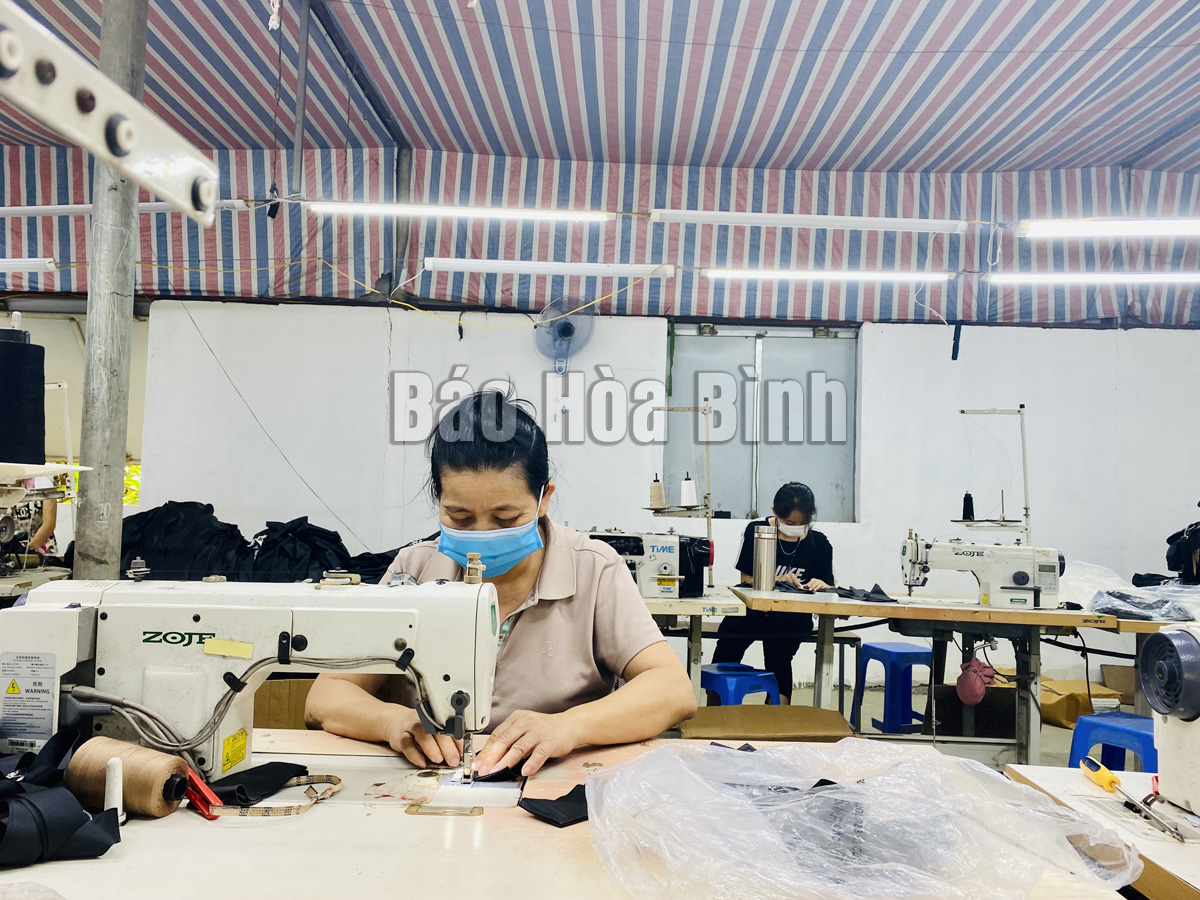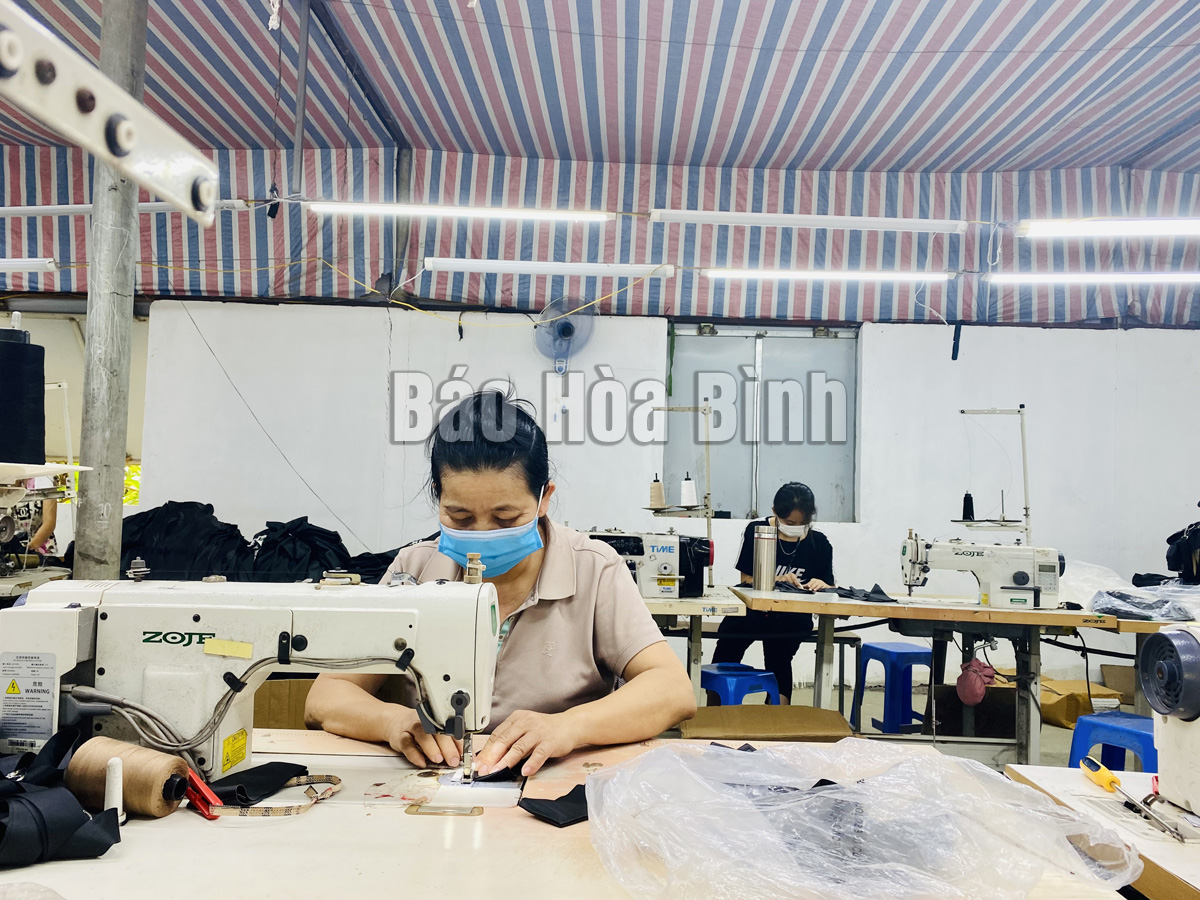
(HBO) – The collective economic sector, with cooperatives at its core, has adapted to the market economy and affirmed its role in socio-economic development of Hoa Binh province and its rural areas in particular.
During the COVID-19 outbreak, the collective
sector and cooperatives have maintained operations and ensured income for
labourers.
The Huy Chi Cooperative in Hung Son commune,
Kim Boi district, which specialises in making clothes for export, has generated
jobs for about 50 local labourers.
Over the past 20 years, the collective sector
and cooperatives have grown in both quality and quantity.
Statistics show that as of the end of 2021, the
province counted 228 cooperative groups, up 2.78 percent from 2001; and 476
cooperatives, up 73.9 percent, of which 446 are operational.
The average turnover of each cooperative during
the 2013-2021 period doubled that in 2001-2012, and reached 3 billion USD last
year. Meanwhile, each labourer earns over 4 million VND monthly.
Notably, the cooperatives have promoted major
local products, and many of them have cooperated with supermarkets and big
businesses to expand the consumption market for their products, contributing to
improving product quality and competitiveness.
Bui Huyen, Vice Chairman of the Yen Thuy
district People’s Committee, said cooperative groups and cooperatives have
operated in a wide range of areas like agriculture, handicraft ad
transportation services.
Resources have been mobilised to develop the
collective sector through assisting with the establishment of new cooperatives,
providing them with modern machines, and helping put products on e-commercial
platforms, thus encouraging locals to join cooperatives.
Dinh Cong Su, Vice Chairman of the provincial
People’s Committee and head of the provincial steering board for the
development of cooperatives, noted that cooperatives have brought about
sustainable production outcomes in rural areas, especially disadvantaged and
ethnic minority-inhabited areas.
In up to 65 percent of communes, cooperatives
have actively contributed to the local agriculture-based economy and new-style
rural area building, according to the official.
Hang Kia tourism service and agricultural
cooperative in Mai Chau district was established in June 2021 with 11 members,
of which three households offer community-based tourism services, one
specialises in brocade production, and seven others engage in farming.
Each year, the cooperative welcomes nearly
10,000 holidaymakers and earns some 1 billion VND from tourism. It has also
created jobs for 15 labourers, each with income ranging from 3-5 million VND
per month.
The cooperative’s community-based tourism services
have been recognised as four-star OCOP products by the provincial People’s
Committee.
Hoa Binh now has 58 products of 41 cooperatives
that are rated three stars and above.
Apart from such achievements, limitations still
remain in the collective economic sector such as slow, unstable growth and
modest contributions to the province’s gross regional domestic product (GRDP).
Given this, Hoa Binh aims to raise the sector’s
contributions to the GRDP to 6 percent by 2030, and have 300 cooperative
groups, 730 cooperatives and 10 cooperative alliances, with 27,200 members.
Su said to achieve the targets, the province
needs to raise public awareness of the collective economy and promote the role
of all-level Party Committees and authorities and localities as well as
coordination between departments, agencies and organisations in leadership.
Other tasks include consolidating relevant
mechanisms, promoting new-style cooperative models and investing more in the
models, especially those in agriculture, in disadvantaged and ethnic
minority-inhabited areas./.
According to data from the Hoa Binh Provincial Party Committee, the industrial production index for the first six months of 2025 is estimated to have increased by 20% compared to the same period last year. This marks the highest year-on-year growth rate for this period since 2020.
In the first six months of 2025, Hoa Binh province’s export turnover was estimated at 1.145 billion USD, marking an 18.11% increase compared to the same period in 2024. Import turnover was estimated at $ 804 million, a 17.15% increase, which helped the province maintain a positive trade balance.
The lives of the ethnic minority farmers in Tan Lac district have gradually improved thanks to the new directions in agricultural production. This is a testament to the collective strength fostered through the professional associations and groups implemented by various levels of the district’s Farmers’ Union.
With the motto the "product quality comes first,” after nearly one year of establishment and operation, Muong village’s Clean Food Agricultural and Commercial Cooperative, located in Cau Hamlet, Hung Son Commune (Kim Boi district), has launched reputable, high-quality agricultural products to the market that are well-received by consumers. The products such as Muong village’s pork sausage, salt-cured chicken, and salt-cured pork hocks have gradually carved out a place in the market and they are on the path to obtaining the OCOP certification.
In the past, the phrase "bumper harvest, rock-bottom prices" was a familiar refrain for Vietnamese farmers engaged in fragmented, small-scale agriculture. But today, a new spirit is emerging across rural areas of Hoa Binh province - one of collaboration, organisation, and collective economic models that provide a stable foundation for production.
Maintaining growing area codes and packing facility codes in accordance with regulations is a mandatory requirement for agricultural products to be eligible for export. Recently, the Department of Agriculture and Environment of Hoa Binh province has intensified technical supervision of designated farming areas and packing facilities to safeguard the "green passport" that enables its products to access international markets.



